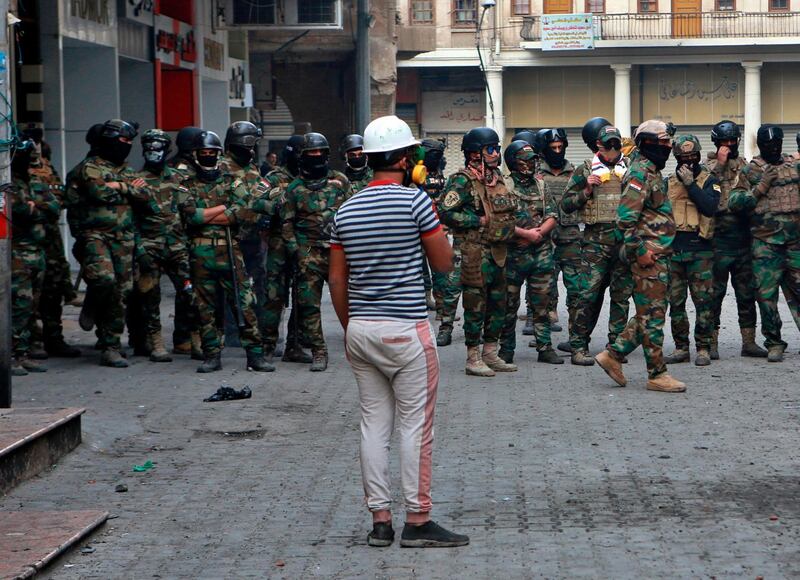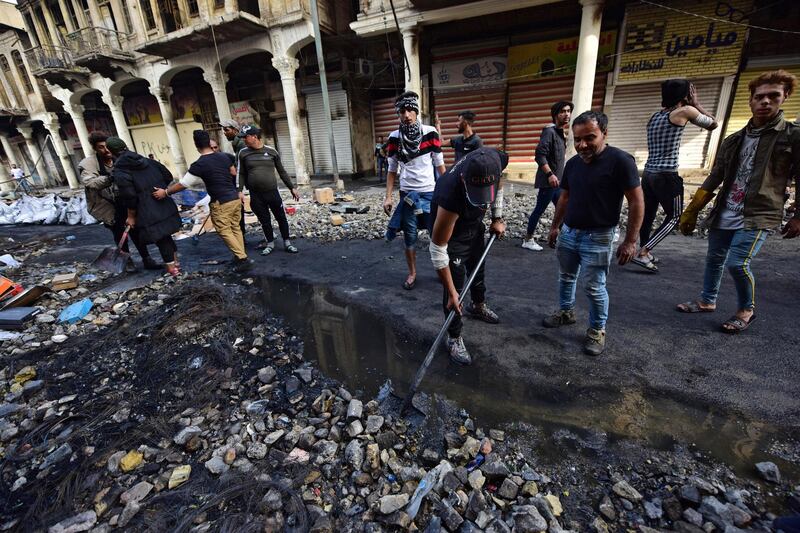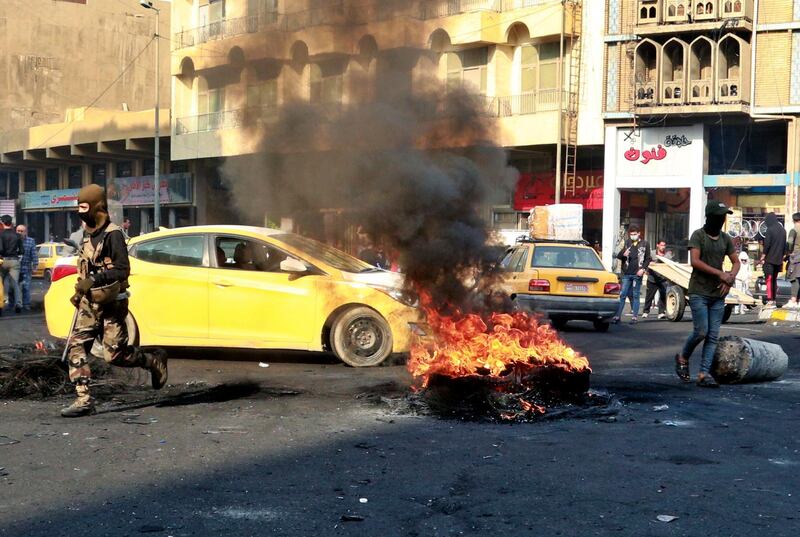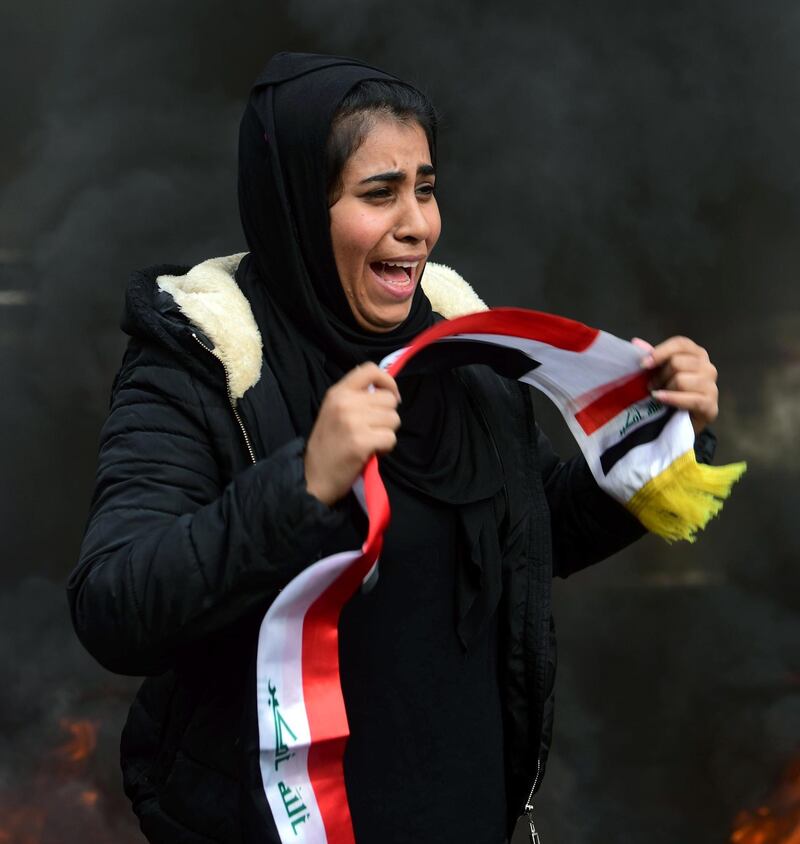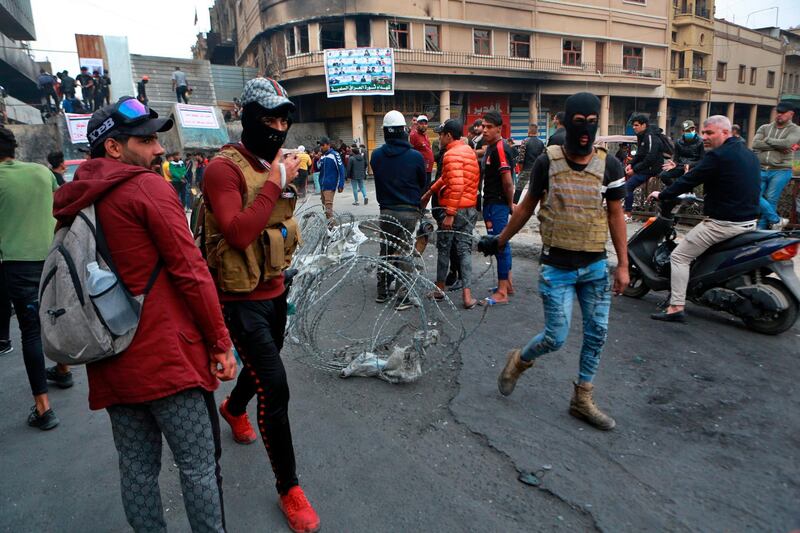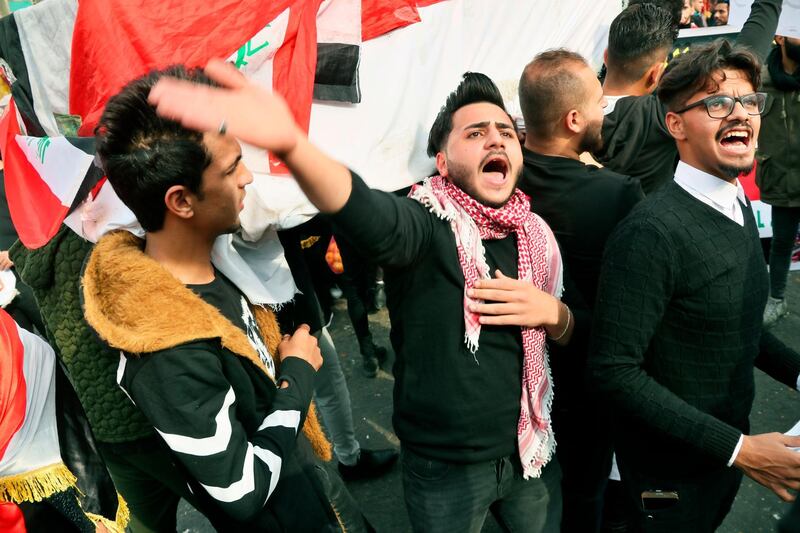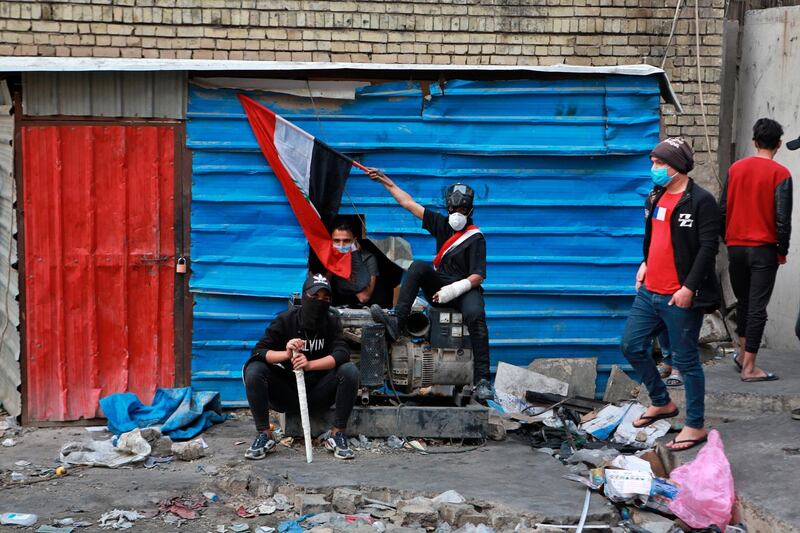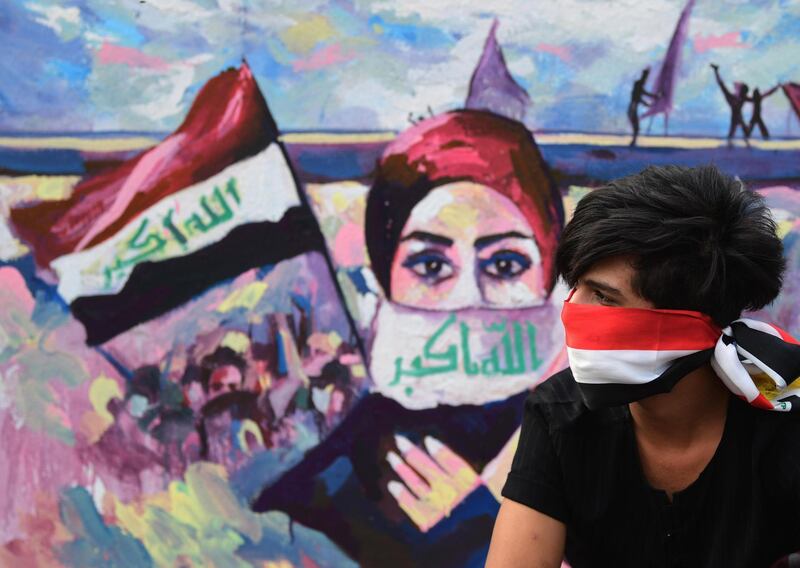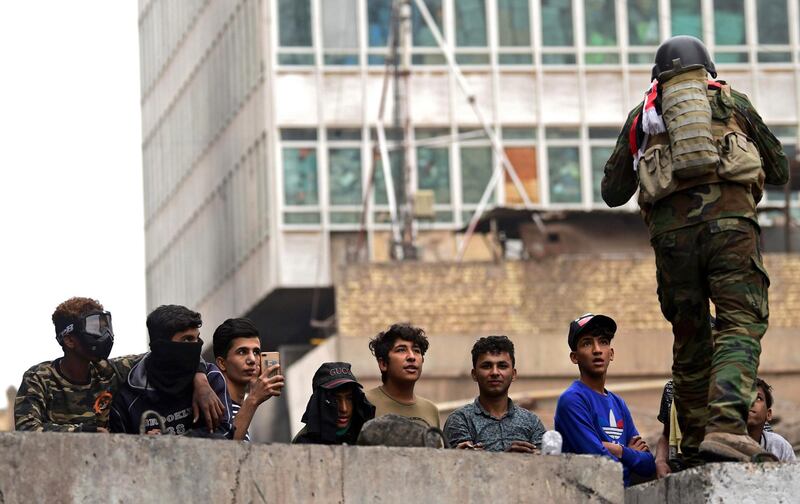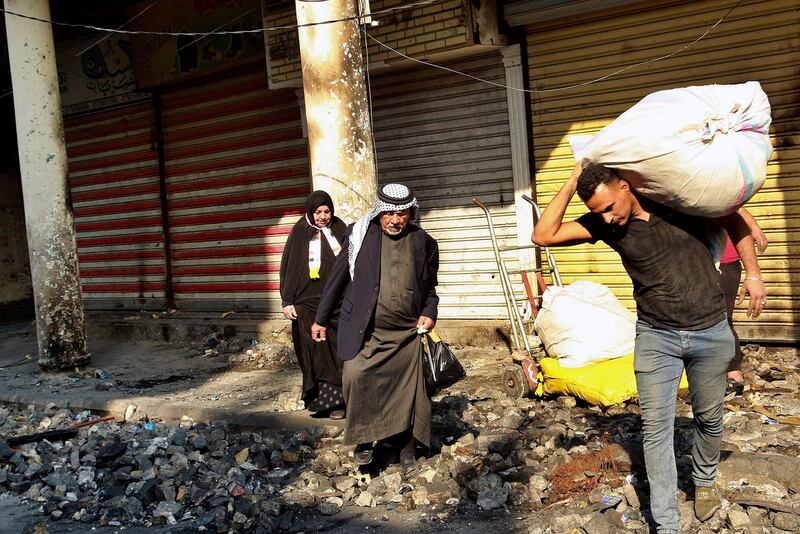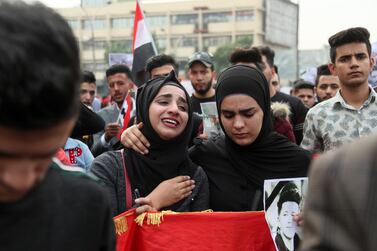Dozens of Iraqi police officers will face prosecution this month, accused of shooting anti-government demonstrators at mass protests in early October, government officials told The National on Tuesday.
At least 400 have been killed and thousands wounded since Iraq’s mass rallies against corruption, lack of jobs and services began at the start of October.
About 140 them were killed and 4,200 wounded in the first five days, an official report said.
The news of the widening probe comes two days after the first two officers were sentenced for their part in protesters' deaths.
“Forty-three police officers will be prosecuted this month for the killing of protesters during the period between October 1 and 5,” an Iraqi security official said.
Like the first two officers, the others “will either get the death penalty or be sentenced to seven years in prison”, he said.
The officers set for trial are part of the Rapid Reaction Force, a federal unit that operates as a single entity and “on executive orders from high above”.
On Sunday, a police officer was sentenced to death for killing protesters in Wasit province, south-east of Baghdad.
The province’s Criminal Court also jailed a police lieutenant colonel for seven years for his role in the death of protesters in the southern city.
"Two of the victim's families took their complaints to Wasit's Criminal Court to prosecute the officers," an Iraqi parliamentarian told The National.
“There are also witnesses that say the two officers gave direct orders to shoot two protesters."
Iraqis have voiced anger at the government’s failure to address or take responsibility for its part in the bloodshed, or to hold members of the Iran-backed Popular Mobilisation Forces accountable.
Militias linked to the group are believed to be behind some of the killings.
On Sunday, the country’s judiciary issued an arrest warrant against Gen Jamil Al Shammari over the deaths of protesters in the southern city of Nasiriyah last week.
The Higher Judiciary Council said magistrates in the southern Dhi Qar province issued a warrant for Gen Al Shammari and barred him from leaving the country.
The council, which oversees Iraq's judicial system and is independent of the Justice Ministry, said he “issued the orders that caused the killing of demonstrators in the province”.
Gen Al Shammari is accused of leading a crackdown in the protest centre of Nasiriyah, which killed at least 29 protesters and wounded more than 200 in a few hours on Thursday.
Najaf, 150 kilometres south of Baghdad, has been one of the flashpoints in the protest movement after protesters torched the Iranian consulate there last week.
Three protesters there were killed and 24 wounded on Saturday as security forces used live rounds to disperse them from the consulate.
On Tuesday, protesters surrounded a key shrine in Najaf and demanded that influential Shiite cleric Moqtada Al Sadr help them to enter and symbolically take control of the shrine.
Five rockets also landed inside Ain Al Asad airbase, a sprawling complex in western Anbar that hosts US troops, without killing people and causing little damage, Iraqi security said on Tuesday evening.
The populist Mr Al Sadr was a key backer of departing Prime Minister Adel Abdul Mahdi after having won the most seats in parliament in a May 2018 general election.
But he backed the protests early on and told his fighters to protect demonstrators from security forces.
Political factions met on Tuesday to try to find a replacement for Mr Abdul Mahdi and draft a new electoral law to oversee a snap general election.
Mr Abdul Mahdi resigned on Friday after a call by Iraq's top Shiite cleric, Ayatollah Ali Al Sistani, for Parliament to consider withdrawing its support for his government to stem the violence.
Iraq's Sairoon political bloc, led by Mr Al Sadr, told President Barham Salih in a letter that they gave protesters the right to support a leader of their choice.
Parliament voted to accept Mr Abdul Mahdi's resignation on Sunday a day after Cabinet voted to do the same.
The Speaker of the Iraqi Parliament has asked the President to appoint a prime minister within 15 days.
